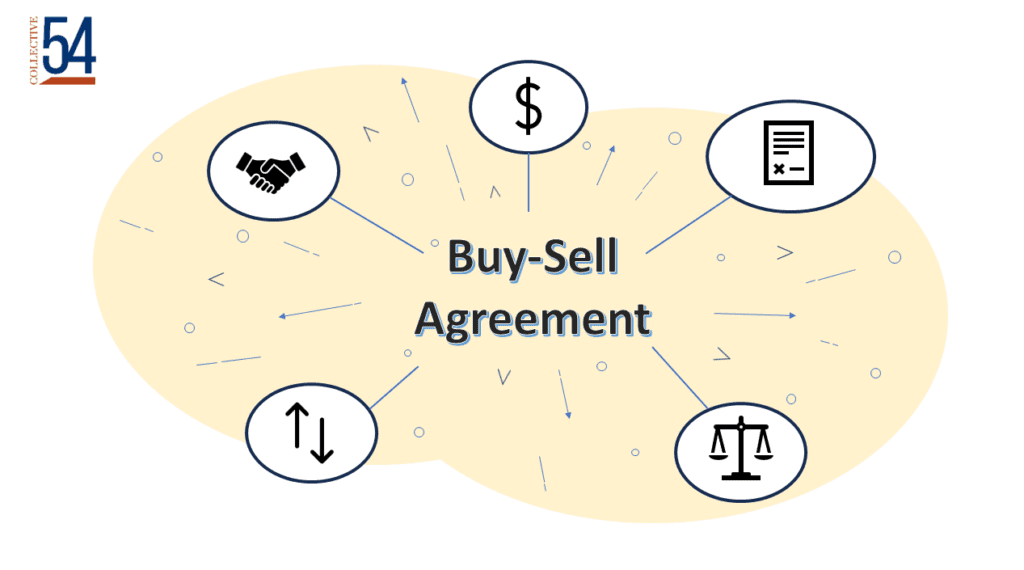Why Every Professional Service Firm Needs a Buy-Sell Agreement

Navigating the world of business partnerships is both thrilling and challenging. Whether you’re the co-founder of a consulting firm, a marketing agency, a software development firm, or another type of service firm, the common denominator for ensuring long-term harmony and clarity in ownership matters is a well-drafted buy-sell agreement.
Purpose of Buy-Sell Agreements
A buy-sell agreement is akin to a prenuptial agreement for business. It preempts potential disputes by delineating terms and conditions under which a partner can sell their stake, to whom, and at what price. The key purpose is twofold:
- Providing Liquidity: Businesses, especially boutique professional service firms, are often illiquid assets. This means if a partner wants to exit, they can’t easily convert their ownership into cash. A buy-sell agreement offers a solution by laying out the terms and conditions under which such an exit can occur, ensuring the departing partner receives fair compensation for their shares.
- Limiting Ownership: These agreements ensure that ownership remains within a controlled, desired group. Without them, partners could potentially sell their shares to anyone, which may not be in the firm’s best interest.
- Providing Liquidity: Businesses, especially boutique professional service firms, are often illiquid assets. This means if a partner wants to exit, they can’t easily convert their ownership into cash. A buy-sell agreement offers a solution by laying out the terms and conditions under which such an exit can occur, ensuring the departing partner receives fair compensation for their shares.
Three Key Provisions of Buy-Sell Agreements:
- Establishing Transfer Permissions: At its core, a buy-sell agreement mandates that any transfer of shares requires the unanimous consent of co-founders.
Illustrative Example for Consulting Firms: Let’s say Alex and Jamie co-founded a thriving management consultancy. Alex receives an attractive offer from an external investor to buy half of his shares. With a buy-sell agreement in place, Alex cannot sell without Jamie’s approval. This protects the business from unwanted or potentially disruptive external investors.
Restricting Share Transfer: This provision determines who can buy shares and under which circumstances, ensuring that the firm’s ownership remains within the desired group.
Illustrative Example for Marketing Agencies: Consider Maria and Jennifer, who co-founded a marketing agency. Their buy-sell agreement stipulates that shares can only be sold to existing partners or family members. Jennifer wants to retire and sell her shares to a close friend who’s a marketing whiz. Although the friend is talented, the buy-sell agreement restricts this sale unless Maria consents.
Obligatory Purchase at Fair Value: This provision ensures that, upon certain trigger events (like death, disability, or retirement), one party must buy, and the other must sell the shares at a predetermined or fairly computed price.
Illustrative Example for Software Development Firms: Matt and Roberto run a software development firm. If Roberto were to suddenly pass away, their buy-sell agreement might require Matt to buy Roberto’s shares from his heirs at a previously agreed upon price or a price determined by a valuation formula. This ensures that Roberto’s family receives fair compensation and Matt retains full control of the business.
- Establishing Transfer Permissions: At its core, a buy-sell agreement mandates that any transfer of shares requires the unanimous consent of co-founders.
Facilitating the Buy-Sell Discussion:
Creating a buy-sell agreement requires open dialogue among partners about their visions for the firm’s future, their personal financial needs, and their potential exit scenarios.
Tool for Discussion: The “Partnership Alignment Matrix”
- Vision for the Firm: Have each partner separately list out where they see the firm, and themselves, in 5, 10, and 15 years. Compare notes. Are you aligned?
- Potential Exit Scenarios: List out reasons each partner might exit (e.g., retirement, other business opportunities, health issues). Discuss and prioritize them.
- Valuation Mechanisms: Discuss how the firm should be valued in various scenarios. Use industry metrics, get periodic professional valuations, or set a fixed price that’s revisited annually.
- Vision for the Firm: Have each partner separately list out where they see the firm, and themselves, in 5, 10, and 15 years. Compare notes. Are you aligned?
Meeting with a mediator or a neutral third party can also be valuable during these discussions to ensure that all concerns are addressed. Here are a few Collective 54 members who can help you think through a buy-sell agreement:
In conclusion, while the thrill of starting a boutique professional service firm can overshadow future-focused planning, it’s crucial to prepare for all eventualities. A buy-sell agreement is an indispensable tool that safeguards the firm’s future, provides clarity, and ensures the financial well-being of all partners. Always consult with an experienced attorney when drafting or revising such an agreement.
